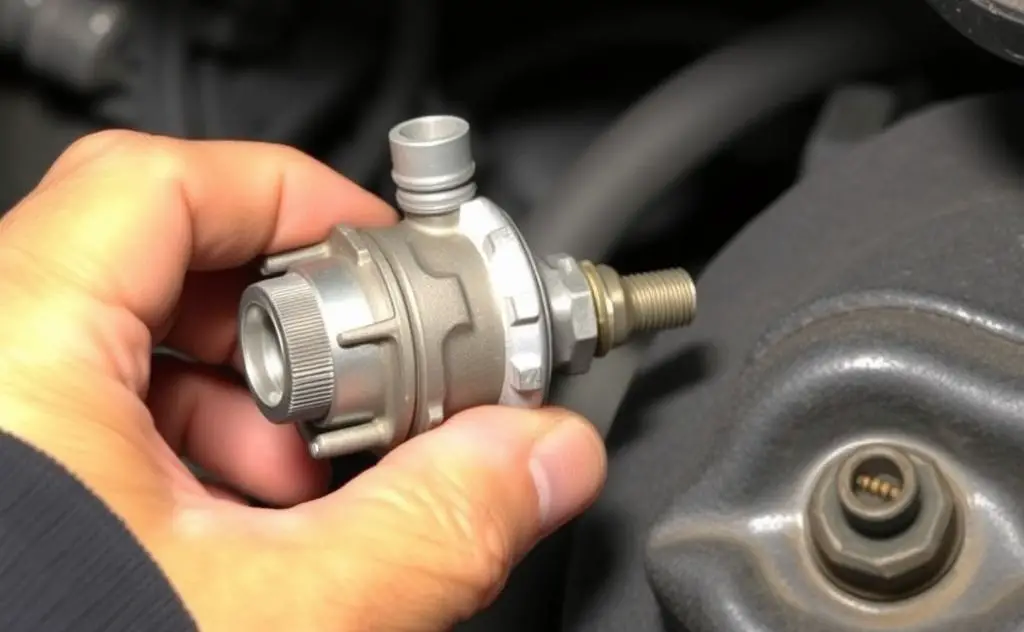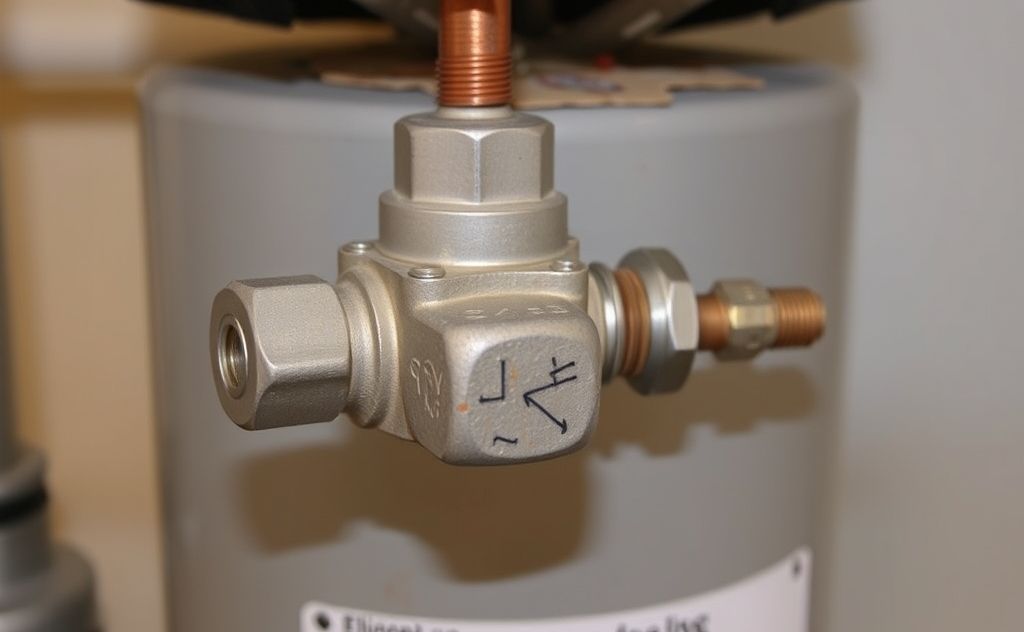You can tell if your heater control valve is not working if you experience inconsistent cabin temperatures, a lack of heat when the heater is on, or coolant leaks around the valve area.
A malfunctioning heater control valve can leave you shivering in winter or struggling with foggy windows. This critical component regulates hot coolant flow to your heater core, directly impacting cabin comfort and visibility. Learn how to spot trouble before it leaves you stranded in the cold.

What Does a Heater Control Valve Do?
The heater control valve acts as a gatekeeper for your vehicle’s heating system. When open, it allows hot engine coolant to flow through the heater core, warming air before it enters your cabin. Modern vehicles use either:
- Blend door systems (common in newer cars) – Always allows coolant flow, using an air mix door to regulate temperature
- Control valve systems (older vehicles) – Physically blocks or allows coolant flow to the heater core
As noted in our guide to gas water heaters, proper fluid control is essential for efficient heating systems.

Top Symptoms of a Bad Heater Control Valve
1. No Heat From Vents
The most obvious sign is cold air blowing regardless of temperature settings. This occurs when the valve fails in the closed position, blocking all coolant flow to the heater core.
2. Uncontrollable Heat
If your vents blast hot air you can’t regulate, the valve may be stuck open. This constant hot coolant flow overheats the heater core.
3. Erratic Temperature Changes
Heat output that fluctuates without adjusting controls suggests a partially stuck valve or failing actuator.
4. Coolant Leaks
Visible drips or stains near the valve (typically near the firewall) indicate seal failure. Check for:
- Puddles under the dashboard
- Low coolant levels
- Sweet-smelling steam from vents
5. Overheating Engine
Severe coolant loss from a leaking valve can lead to engine overheating. Watch for rising temperature gauge readings.
6. Stuck Temperature Control
If adjusting the heat knob produces no change, the valve may have failed to respond to control inputs.
7. Whistling or Hissing Noises
Vacuum-operated valves often make unusual sounds when diaphragms rupture or lines leak.
How to Test Your Heater Control Valve
Visual Inspection
Locate the valve (consult your service manual) and check for:
- Cracked housing
- Corroded fittings
- Coolant residue
- Damaged vacuum lines (if applicable)
Temperature Test
- Start the engine and let it reach normal operating temperature
- Set climate controls to maximum heat
- Feel both heater hoses – they should be equally hot
- Switch to cold – one hose should cool significantly
Uneven temperatures indicate restricted flow. As we explain in our water heater troubleshooting guide, proper heat transfer is critical for system operation.
Replacement Considerations
When replacing a faulty valve:
| Valve Type | Average Cost | Labor Time |
|---|---|---|
| Manual Cable | $20-$50 | 0.5-1 hour |
| Vacuum Operated | $30-$80 | 1-1.5 hours |
| Electronic | $50-$150 | 1-2 hours |
According to CarParts.com, many modern vehicles have eliminated the heater control valve in favor of blend door systems. However, valves remain common in older models and certain truck applications.
Preventative Maintenance Tips
- Flush cooling system every 2-3 years
- Use manufacturer-recommended coolant
- Inspect hoses and connections annually
- Address small leaks immediately
As highlighted in RepairPal’s guide, neglecting heater valve issues can lead to complete cooling system failure. The small cost of early repair prevents expensive engine damage later.
When to Call a Professional
While some mechanical valves are simple to replace, complex systems require expert attention. Seek professional help for:
- Electronic control systems
- Vacuum-operated valves
- Hard-to-reach installations
- Any cooling system work requiring bleeding
Remember that proper heater operation isn’t just about comfort – it’s a critical safety system for maintaining visibility in cold weather conditions.
